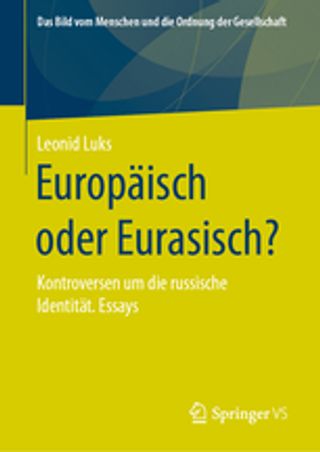?
Europäisch oder Eurasisch? Kontroversen um die russische Identität. Essays
Когда Петр I в начале XVIII века «прорубил окно в Европу» и сверг богоизбранный Третий Рим с пьедестала, Россия в лице ее правителя, как бы отказалась от своего особого пути и стала неотъемлемой частью европейской ойкумены, полноправным членом европейского «концерта держав». Основная драма будущей России таким образом была предопределена. Византийское наследие и петровский замысел обречены были теперь на противоборство и на сосуще-ствование. Превратить Россию в «нормальную» европейскую страну не удалось ни Петру, ни его преемникам. Но и путь к допетровской старине был окончательно закрыт. Несмотря на процесс постепенного слияния двух частей расколотого до Петра континента, ни в России, ни на Западе не умолкал диспут об особом характере русской цивилизации, о ее неевропейской сути. Некоторым аспектам этого спора и посвящен данный сборник статей.
